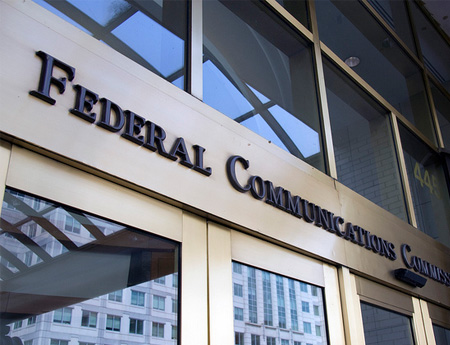FCC Proposing Fix to Sixth Circuit Franchise Decision Remand

The smarter way to stay on top of broadcasting and cable industry. Sign up below
You are now subscribed
Your newsletter sign-up was successful
FCC Chairman Ajit Pai has teed up a fix for its decision on local franchising authorities' regulation of cable franchisees.
That is according to the chairman's blog previewing the Sept. 5 release of the tentative agenda for the Sept. 26 meeting.
"[W]e’ll consider a Second Further Notice of Proposed Rulemaking addressing two issues raised by a remand from the U.S. Court of Appeals for the Sixth Circuit," he wrote. "The topic is how local franchising authorities may regulate incumbent cable operators and cable television services. The proposals we’re teeing up are designed to promote competition by ensuring parity between incumbent cable operators and new entrants and to help ensure that local franchising requirements don’t discourage cable operators from investing in new facilities and services."
In 2007, the FCC under Republican Chairman Kevin Martin, gave new entrants a deregulatory boost by barring local franchising authorities (LFAs) from imposing "unreasonable" demands as the cost of a franchise, including requiring the provision of non-cable services, and several years later, under Democratic Chairman Tom Wheeler, extended that deregulation to.
That item confirmed that the earlier FCC rule changes meant to prevent local franchising authorities from delaying the grant of franchises apply to incumbent cable operators as well as telcos and other new entrants.
In Montgomery County, Md., v. FCC, the Sixth Circuit last year found that the FCC could not use its mixed use rule to bar LFAs from requiring franchisees to provide non-cable services because that would appear to prevent LFAs from regulating institutional networks, which statute clearly allows them to do.
The court also concluded that the FCC had not sufficiently justified why it had expanded its definition of franchise fees to include non-cash requirements by LFAs and thus count toward the 5% cap on franchise fees.
The smarter way to stay on top of broadcasting and cable industry. Sign up below
The court vacated those portions and remanded them back to the FCC for action, if necessary.
The FCC launched the revamp of local franchising rules in 2006 to make sure localities were not "unnecessarily refusing" to award cable franchises to new entrants. In its first order, it eased the franchise path for those new entrants by, among other things, putting a shot clock on local franchise negotiations, limiting build-out requirements and franchise conditions, and capping public and government access channel investments.
It then issued a second Report and Order that extended most of those new rules to incumbent cable operators as well when their franchises came up for renewal, concluding that "to promote the federal goals of enhanced cable competition and accelerated broadband development, the Commission's rules regarding the local franchising process should be extended to incumbent cable operators."
The FCC also concluded that most favored nation clauses would also allow incumbents to adjust their franchise obligations if and when a new entrant obtained more favorable franchise conditions.
Some LFAs challenged the MFN clauses and the applicability of the second order to statewide franchising. They also filed suit, which was consolidated in the Sixth Circuit, which was already hearing a challenge of the first order — which it ultimately upheld.
Contributing editor John Eggerton has been an editor and/or writer on media regulation, legislation and policy for over four decades, including covering the FCC, FTC, Congress, the major media trade associations, and the federal courts. In addition to Multichannel News and Broadcasting + Cable, his work has appeared in Radio World, TV Technology, TV Fax, This Week in Consumer Electronics, Variety and the Encyclopedia Britannica.

